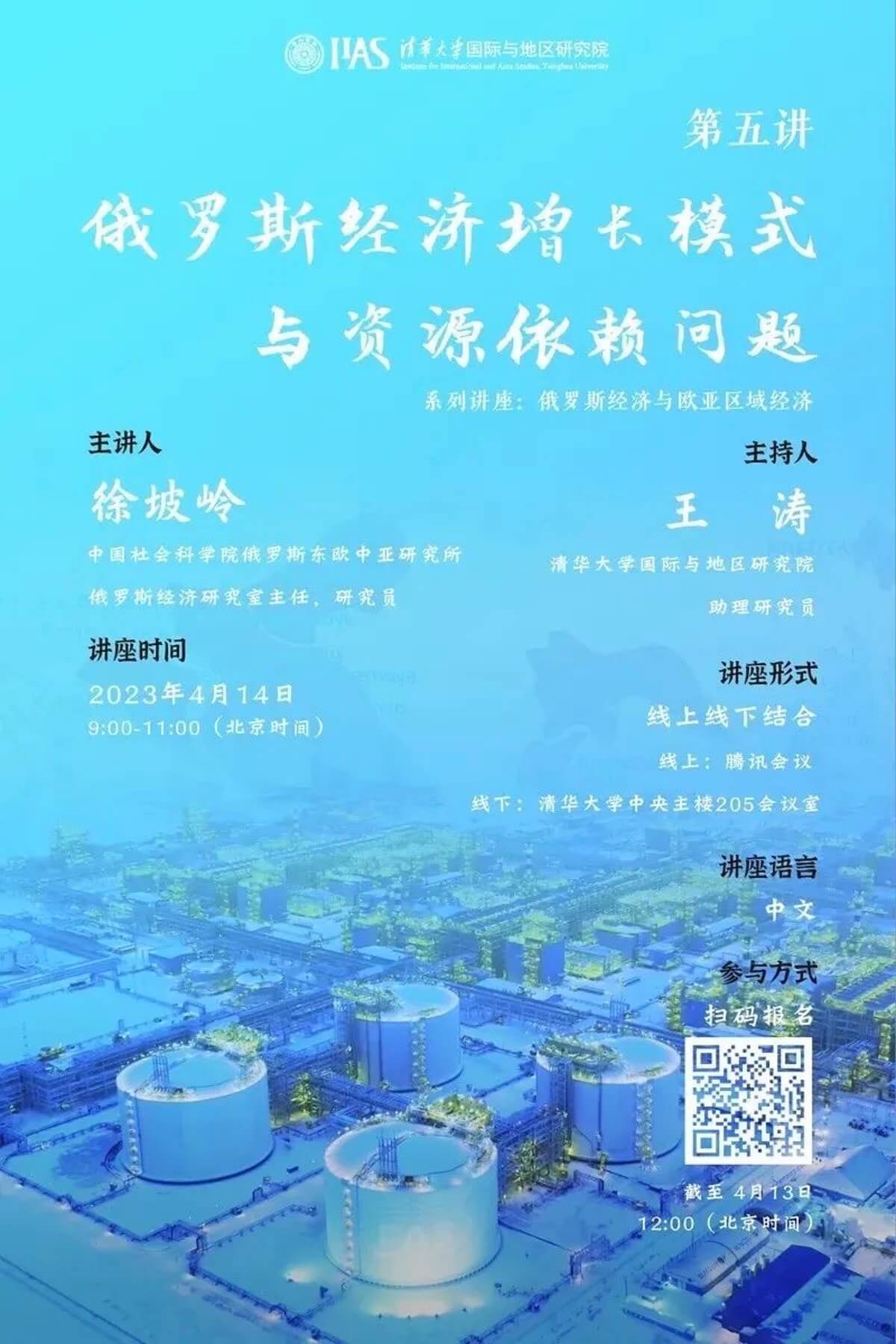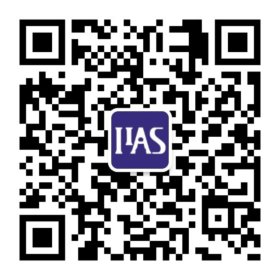
On the morning of April 14, 2023, the Institute for International and Area Studies (IIAS) of Tsinghua University hosted the fifth lecture of the “Russian Economy and Eurasian Economy” series both online and offline. Themed “Russia’s Economic Growth Model and Resource Dependence,” the lecture was delivered by Xu Poling, Research Fellow and Director of the Department of Russian Economy, Institute of Russian, Eastern European & Central Asian Studies, Chinese Academy of Social Sciences (CASS). Present at the lecture were IIAS assistant research fellows and doctoral students, and scholars and students from other departments of Tsinghua University, Nankai University, Northwest University of Political Science and Law, Asian Infrastructure Investment Bank, etc.
In the first part of the lecture, Professor Xu Poling expounded on the business cycle and economic crisis since Russia’s transformation and its economic growth model. He presented five different views on the causes of the business cycle, including economics, pure monetary theory, monetary over-investment theory, underconsumption theory and psychological expectation theory. He also outlined the five types of the business cycle, and summarized the neutral and critical concepts about economic crises and their main manifestations and causes. Then, Professor Xu inquired into the nature of Russia’s economic crisis from 1992 to 2022 and the key driving forces of the growth cycle, and explained Russia’s consumption-driven economy and the root of the problem.
In the second part of the lecture, Professor Xu examined and summarized the fundamental issues in Russia’s resource-dependent and consumption-driven economy. He said that Russia’s investment faces four major issues, namely, slow growth in investment, low accumulation and delivery rates, deficiencies in capital sources and quality, low foreign direct investment inflows, and inadequate high-quality capital. Hence, investment remains a key factor that restricts Russia’s economic growth.
After the end of the lecture, Professor Xu answered a range of questions raised by the audience, such as which aspects of the manufacturing industry are expected to benefit from Russia’s import substitution and industrial support policies and the status quo, how to improve Russia’s manufacturing industry in the future, and Russia’s Far East development strategy and cooperation between China and Russia at the local level.
Xu Poling is Director of the Office of Russian Economic Studies of the Institute of Russian, Eastern European & Central Asian Studies at the Chinese Academy of Social Sciences, Director of the Internal Affairs Office of the Institute of Eurasian Social Development under the Development Research Center of the State Council, and Deputy Director and Research Fellow of the CASS Belt and Road Research Center. With a doctorate degree in economics, he is dedicated to research on the theory of world economy and country-specific economic research, and his research interests mainly include open economy macroeconomics and Russian economy. He has published over 100 papers in a range of academic journals, such as World Economics and Politics, International Economic Review, Russian, East European & Central Asian Studies, World Economy Studies, Journal of Social Sciences, and Northeast Asia Forum. He has also authored a number of books, including Introduction to the Political Economy of Transition, Property Rights and Corporate Governance in Transition Economies, and Interaction Between Economic Globalization and Economic Transition.
Text editor: Wang Qin
Typography editor: Cheng Yao
Proofreader: Eurasian Studies research group




